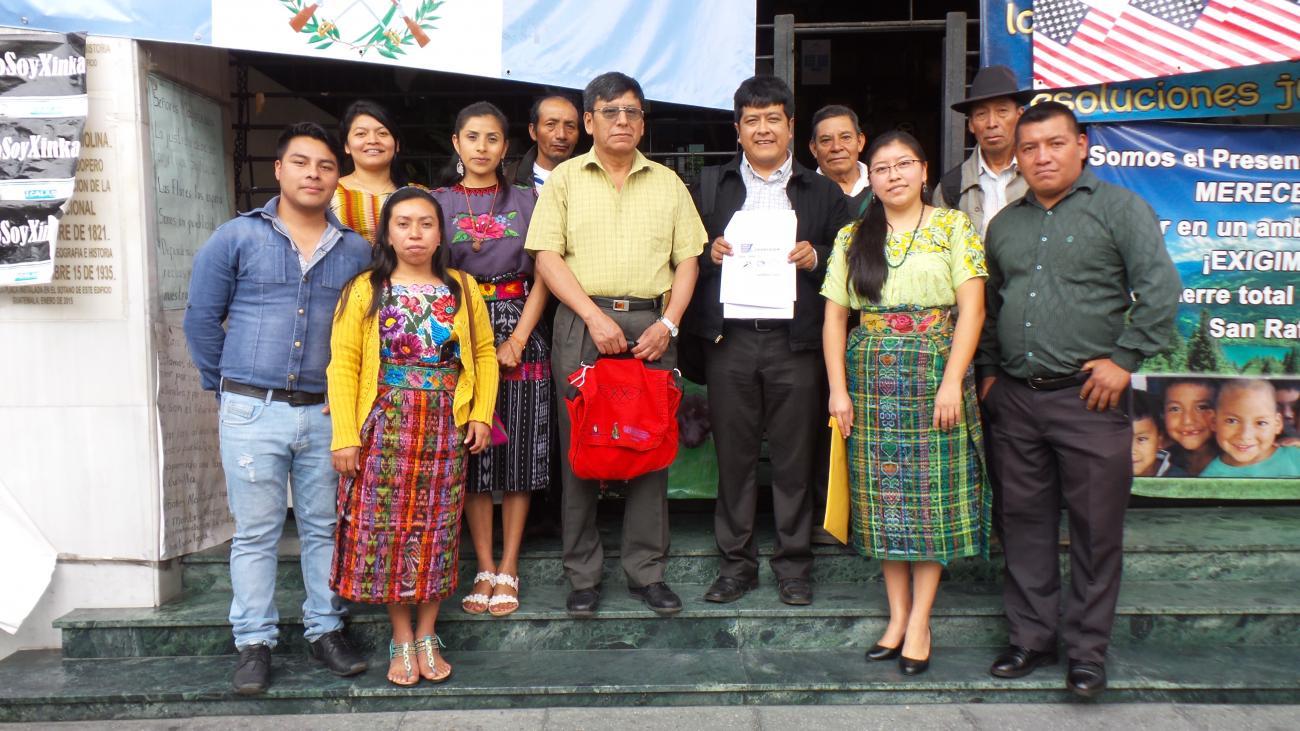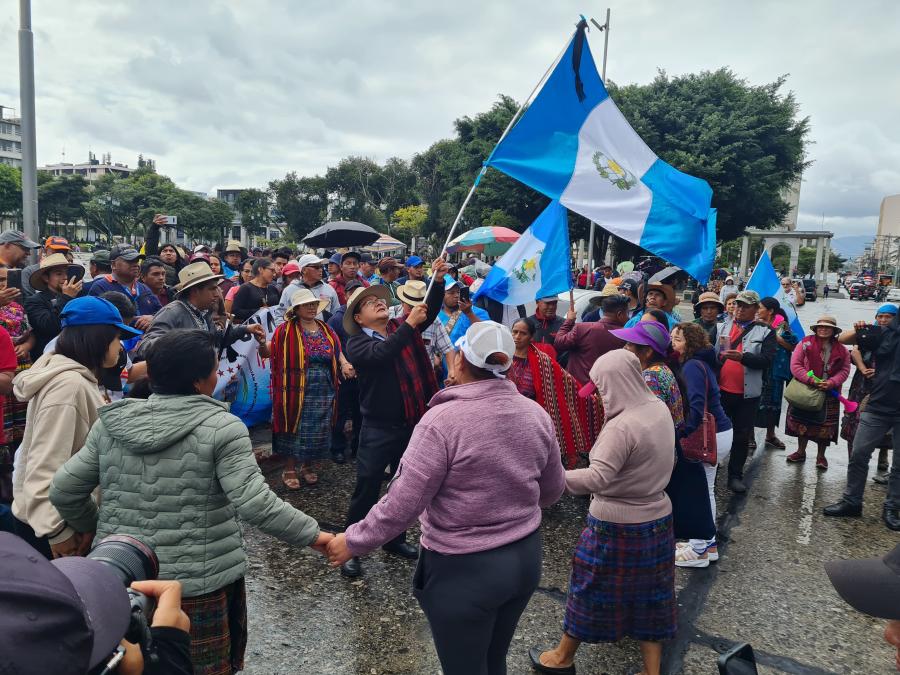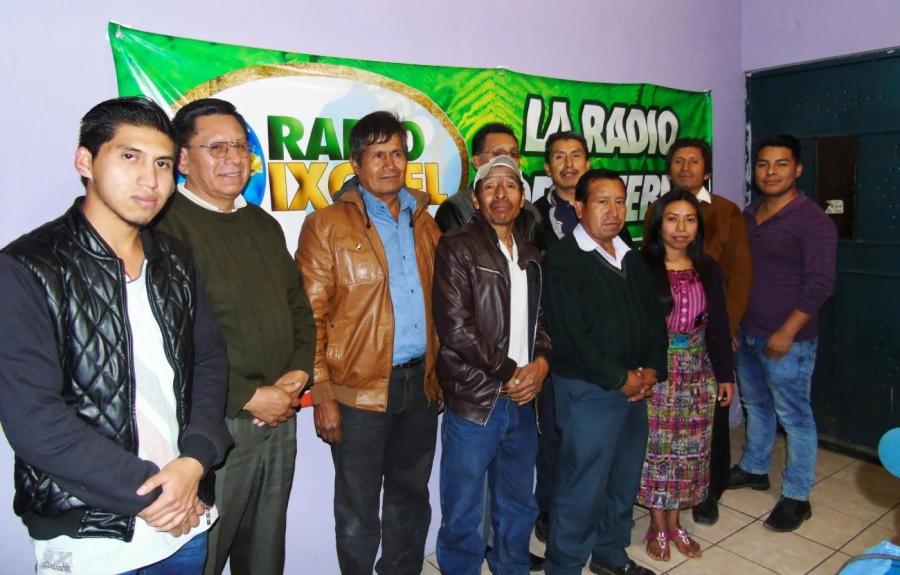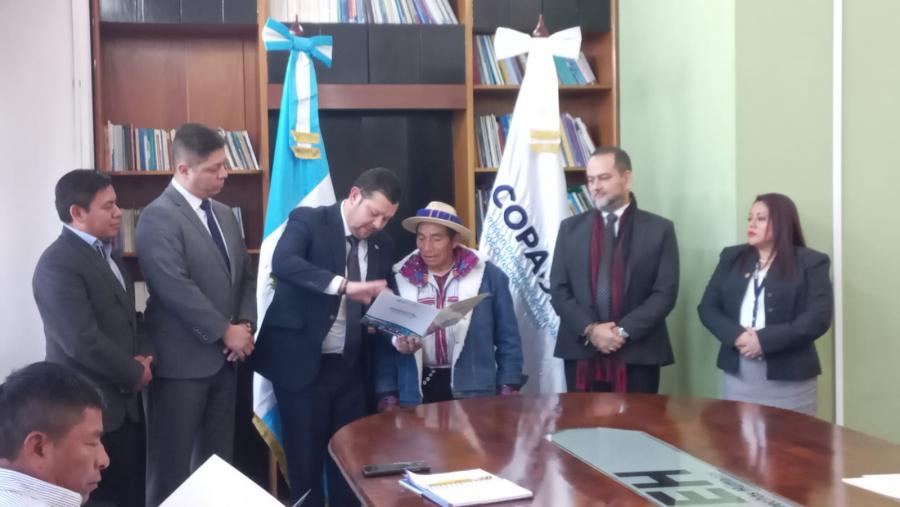
En Español
The case of a Indigenous Guatemalan community radio host criminalized for his work is garnering international attention from a coalition of organizations working on freedom of expression, human rights, and Indigenous Peoples' rights. In September of 2015, Oscar Mejía (Maya K’iche) was detained during a raid at community radio station in Chichicastenango, Quiché, Guatemala. Radio Swan Tinamit, property of the community, promotes the use of the local Indigenous language, worldview, ancestral values, and identity, as well as local news, and events. It was raided, on orders of the Guatemalan Public Ministry, by 15 police officers who confiscated the broadcast equipment and arrested Oscar Mejía, whom they imprisoned for a week. Later, Public Ministry began a penal process, accusing him of theft.
A coalition of local, regional, and international organizations agree that the charges of the lower courts that found Mejía guilty in September 2016 represent an incorrect interpretation of the Guatemalan penal code. The crime of “radio frequency theft” does not exist in Guatemala.
Guatemalan organization Associacion Sobrevivencia Cultural arranged for lawyer Cristian Otzin of the Association of Mayan Lawyers & Notaries to defend Mejía during his trial. The defense focuses on questioning the Public Ministry over it’s characterization of incident criminal, despite a lack of clear indication of such in Guatemala’s penal code. From Oztin’s perspective, “The State and the monopolies [are using the crime of theft as a strategy] because they know that the community communicators are becoming stronger and building, in many cases, the consciousness of the communities.”
After the sentencing, the defense filed a special appeal in the Regional Appeals Chamber of the Department of Quiché, but the appeal was denied. The Supreme Court of Justice then also denied the appeal. Arguing that Mejia’s right to due process was being violated, Otzin presented the appeal before the Constitutional Court, Guatemala’s highest appellate court.
On July 5, 2018, international and civil society organizations entered an Amicus Curiae to the Constitutional Court of Guatemala to provide technical and legal background to inform the magistrate's understanding of relevant domestic and international law that apply to this case.
The document’s objective is to highlight the legal frameworks that support Indigenous Peoples’ rights to freedom of expression, use of radio frequency, and due process. With this information, the coalition hopes to inform Guatemala’s Constitutional Court justices being asked to grant an appeal for the defense Óscar Mejía. The Amicus Curiae was a joint document developed by Cultural Survival along with the World Association of Community Radio Broadcasters (AMARC), Robert F. Kennedy Human Rights, the Indigenous Peoples Rights Clinic Association of Suffolk University Law School, OBSERVACOM, Red Centroamericana de Radios Comunitarias Indígenas (Central American network of Indigenous Community Radio), Fundación Comunicándonos of El Salvador, and Voces Indígenas of Panama.
Radio Swan Tinamit in Chichicastenango has been in operation for over 10 years and is highly supported by its local Indigenous authorities. After the station was raided in May 2015, Cultural Survival’s Executive Director Suzanne Benally visited the station personally. Carolina Morales, director of the Association for Community Development (ASDECO), the institution that oversees the radio, welcomed Benally. “[Your visit] assures our radio volunteers that we are not alone. After the raid a few of our volunteers quit, fearing jail-time and public shaming. This visit shows us solidarity and gives us strength to continue our work,” Morales shared in 2015.



